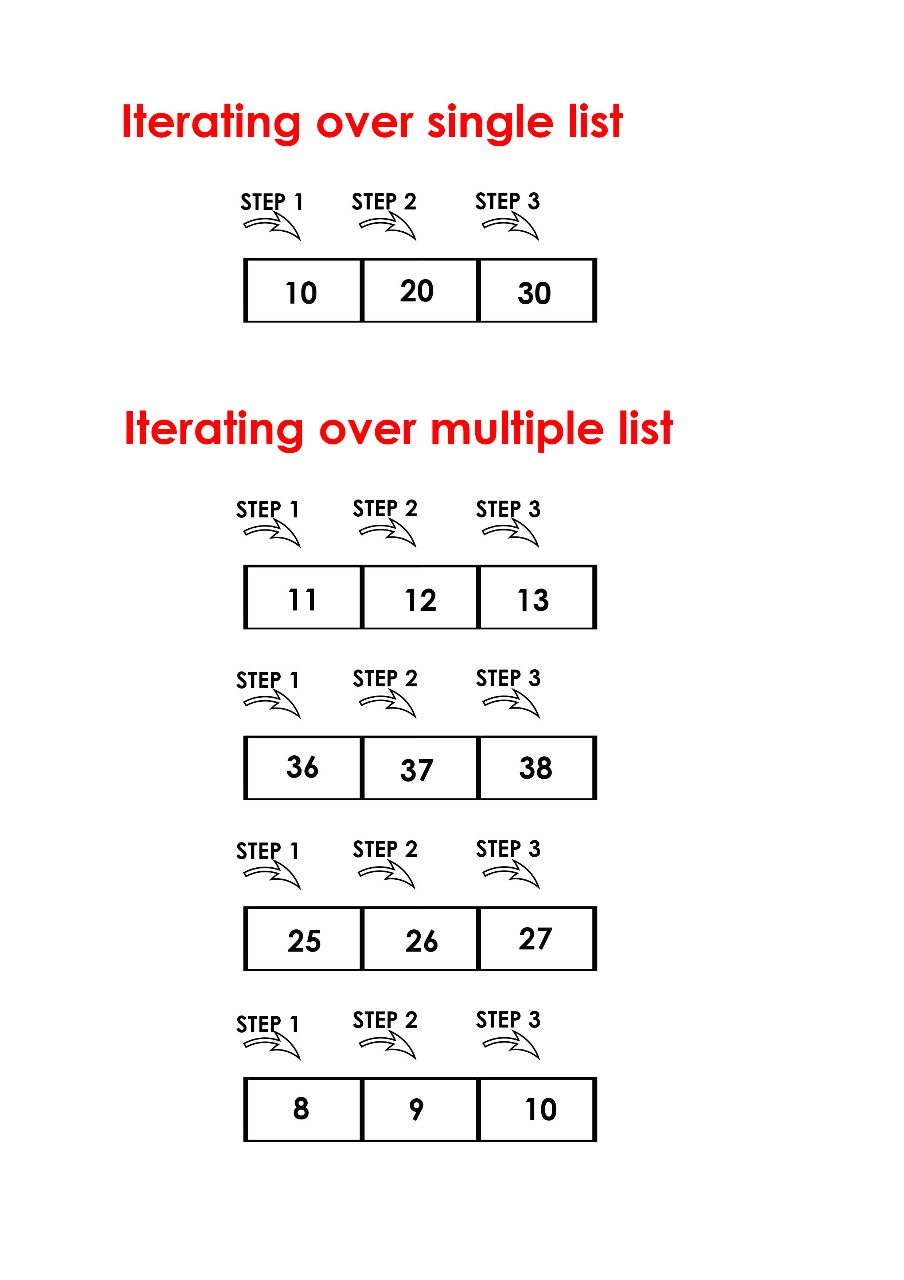
- #ITERTOOLS IZIP TO LIST HOW TO#
- #ITERTOOLS IZIP TO LIST GENERATOR#
- #ITERTOOLS IZIP TO LIST FULL#
- #ITERTOOLS IZIP TO LIST SOFTWARE#
If we were to do filtering via for and if statements, it'd look something like: # Create a simple list numbered 0 to 10īy contrast, we could've achieved this same result using filter(), and passing in the same condition.
#ITERTOOLS IZIP TO LIST GENERATOR#
Since filter() returns a generator ( filter object) - we'll wrap it in a list() to convert it back to a simple list. The filter() Functionįilter() is a built-in function, and it allows us to take a group of iterable items and test if the elements within the iterable meet your specified filter criteria: filter(function, iterable) Iteration tools offer efficient, standardized functions (similar to the functions you'd see in functional programming languages like Haskell) that integrate with other iterative functions to simplify iterative tasks down to just a few lines of code. We often ignore the features and tools a language may have that can help us with iterative tasks. Typically, when we work with iterable objects, we loop through them using basic tools like for loops. We'll start by defining iterable objects and iteration functions and then proceed to look at some examples of the four iteration functions mentioned above.

The first item in both iterables is paired, the second item in both iterables is paired together, and so on. zip() - The zip() function takes two iterable objects and returns a tuple of paired elements.map() - The map() function creates an iterable map object that applies a specified transformation to every element in a chosen iterable.islice() - The islice() function allows the user to loop through an iterable with a start and stop, and returns a generator.It then tests every element in the sequence to determine if the element fits the filtering criteria, returning only the elements that match that criteria. filter() - The filter() function takes in a provided sequence or iterable along with a filtering criteria (a function or lambda).
#ITERTOOLS IZIP TO LIST HOW TO#
This guide will show you how to use Python itertools to iterate through objects via: Python provides its users with a number of useful functions and data structures that make working with data easier, including tools used to efficiently loop through data - known as itertools.

#ITERTOOLS IZIP TO LIST SOFTWARE#
If all else fails, I'll do that.Python has touched the hearts of many software developers around the world, thanks to its utility and simplicity.

I can build a mask list (True/False for small values to keep), but I'm looking for a cleaner more pythonic way.
#ITERTOOLS IZIP TO LIST FULL#
Results in the "unpacking argument list" part (*) of this to trigger a full iteration over the entire iterator and (I assume) cache all results in memory, which is as I said, an issue for me. Using the widely suggested zip solution, similar to: > zip(*) I can't think of a smart way to generate one "list of values" at a time, because I might decide to remove instances of a three-value-tuple occasionally, depending on the big value of the tuple. Out of those three-tuple-values, only one is has big items (memory consumption wise) in it (lets call it data) while the other two contain only values that require only little amount of memory to hold, so iterating over the data value's "list of values" first should work for me by consuming the data values one by one, and caching the small ones. More specifically, I have a generator that generates a three values tuple, and instead of iterating it I'd like to feed three lists of values to three functions, each list represents a single position in the tuple. I need an iterator because I can't fit all values to memory so instead I'm using a generator and iterating over the values.

Like zip() except that it returns an iterator instead of a list I saw this, and this questions and I'd like to have the same effect, only efficiently done with itertool.izip.


 0 kommentar(er)
0 kommentar(er)
